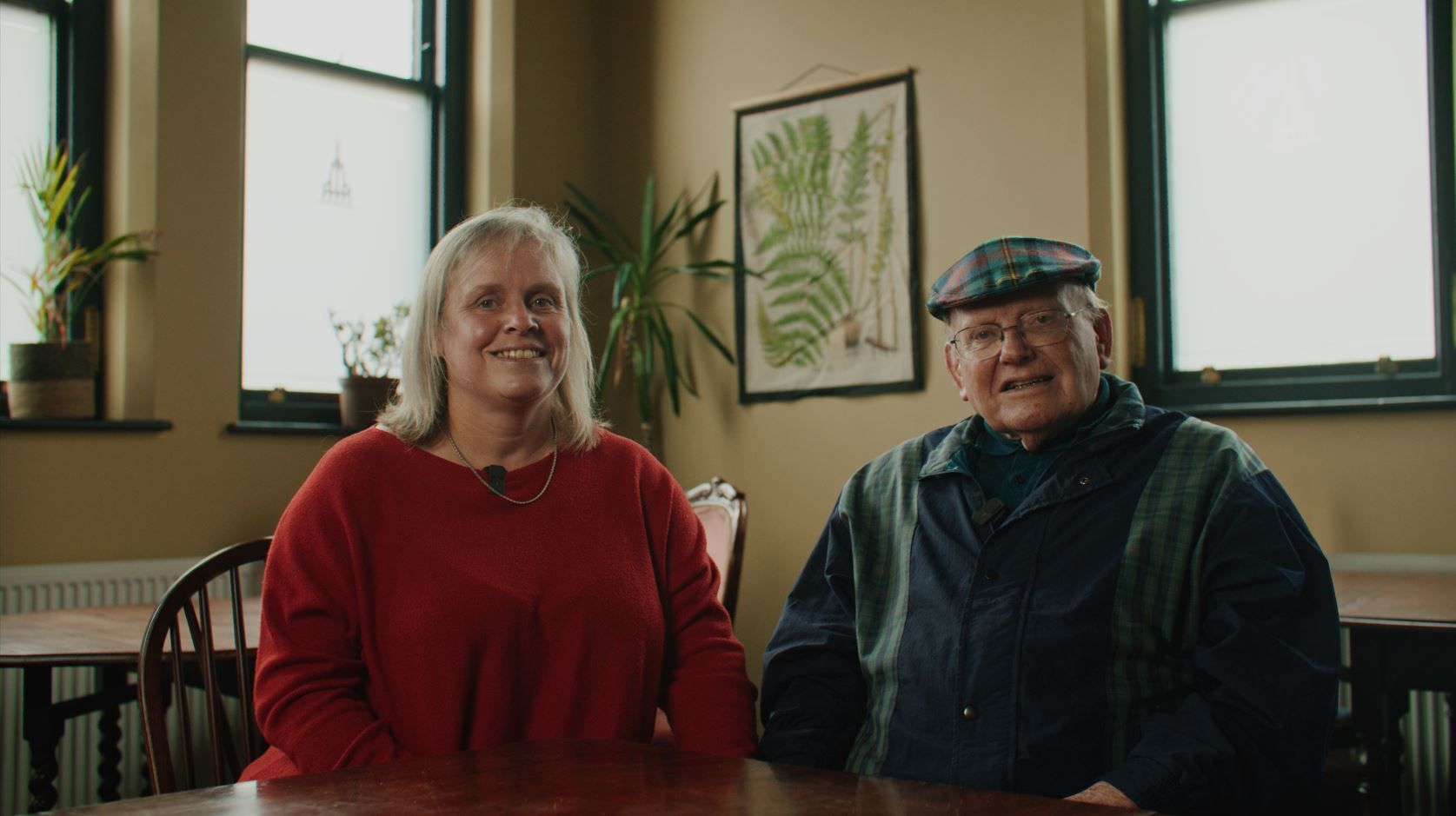MUSIC AND DEMENTIA: TIPS ON HOW TO USE MUSIC IN DAILY CARE
)
Ellen Bassam, Research and Communications Officer at Music for Dementia, shares 6 ways you can use music to support people living with dementia and we hear john’s story.
Caring for someone with dementia can be hard, so any wisdom or little trick to make the day easier is always welcome. Did you know that music can have a profound effect on people living with dementia, and that many professional and family carers use it daily as part of their care?
Music is special, neurologically. It stimulates many different parts of the brain at once. If parts of the brain are not working normally, music can still reach other parts. The results can be amazing and very moving.
There’s growing evidence that music can manage anxiety, reduce the need for medication and create moments of joy and happiness on the toughest of days. It is not a magic wand, but music can help.
And the great news is that music is easy to use and very accessible. There are plenty of different ways that you can harness music’s unique power whether you’re a professional care worker or an at-home family carer. Rest assured, you don’t have to be a great singer or play an instrument to use and benefit from music.

John and his daughter Jo regularly attend a Music Cafe for those living with dementia and their family members. The groups are run by the Manchester Camerata orchestra and are entirely free and open to anyone who wants to join. Part of the Camerata approach is to train carers as Music Champions, so they understand why music is so powerful for people living with dementia and have different musical techniques to try out away from the sessions.
John particularly loves playing the snare drum at these sessions, and Jo has got him a drum to use at home now because he enjoys it so much. Jo says ‘while he forgets what he has done in the session, he is left with an upbeat, uplifting happy feeling which lasts.’
John likes a range of music, from military bands to André Riley, from ABBA, Queen and Tina Turner to classical music. Most mornings he listens to classical music on the radio and then watches André Riley on TV. He and Jo even have a boogie in the car to Smooth radio en route to the Dementia Music café on a Wednesday - their version of Peter Kay's 'Car Share'!
John was recently admitted to hospital which was difficult for everyone. Jo took her son’s old fashioned LP player into the ward and played some music for John and some of the other patients. Jo says “They loved it! All of them are elderly and some have dementia. One of them started crying he was so moved and another patient’s daughter said it was the best afternoon they'd had since their dad was admitted. Music is a wonderful thing.”
John’s great passion has always been sport - watching, playing (back in the day) and talking about fixtures. The whole family is a member of the Timperley Sports Club. John still goes regularly and loves singing his football anthems and chants.
Manchester Camerata is rolling out music cafes and Music Champions across Greater Manchester now as part of being the first Centre of Excellence for music and dementia. Jo hopes one day Timperley Sports Club might host its own music cafe and train even more Music Champions.
Want to try using music? Here are 6 ways that you can start benefiting from its special power.
1. Use Music as a tool in tricky times of the day
Music is a great tool to help make difficult situations that little bit easier. Keep music front of mind in those tricky moments throughout the day. For example, if you’re going somewhere new, sing together in the car to overcome nerves.
There’s such a variety of musical genres out there, that you’ll easily be able to find something to match or change a mood. If someone is agitated consider playing some soothing music, or even a marching tune. If someone struggles with their morning routine, play upbeat, happy songs in the morning to bring some joyful energy into the room.
Keep in mind that people tend to remain emotionally connected to the music they listened to in their late teenage and early adult years. It’s called the ‘musical reminiscence bump.’ Knowing what music someone enjoyed at this stage of their life can be really useful.
2. Use music and lyrics when words seem to fail
Listening to music together can help spark conversations, and reconnect someone with memories.
Even when someone may have lost the ability easily talk, they may still be able to sing. For a family carer, hearing your loved one’s voice again can be magical. Try holding hands together when you sing, as this can bring extra connection and reassurance to you both.
3. Sing
Singing is good for us. It helps our mood, our breathing, and our ability to be in the moment. Singing just a line or two from a favourite song can help transform a mood.
4. Set up or join a choir
There are dementia choirs, and community choirs for carers all over the UK. They can be a great way to make friends and build your support network. For many people living with dementia and their carers, the weekly trip to the choir is the highlight of their week.
If you work within a care home setting consider setting up a choir. You’ll be amazed at how much joy it can bring to residents.
5. Make a playlist
We all have a soundtrack to our lives – the songs connected to the people, memories, and moments that are special to us. Think of it as your very own Desert Island Discs.
Finding those tunes can be fun. At the end you have a playlist of your life. You can listen to the music whenever you need to change your mood or bring back memories.
BBC Music Memories can help - musicmemories.bbcrewind.co.uk/home. It’s free to use and offers 30 second music clips in different categories; from hobbies and interests through the decades, to top tracks from around the world.
If you don’t know how to make a playlist reach out to someone with good digital or technology skills. Grandchildren often find making a playlist can be a good way for them to get involved and use their skills to help.
If you’d rather listen to the radio, m4dradio.com is an online radio station which plays music from different genres specifically designed for people living with dementia.
6. Live Music
Many theatres and orchestras offer 'dementia-friendly' performances and activities for people living with dementia. Visit their websites to see what is available. Use google to search what music and dementia charities are in your area.
Songwriting, dancing, inter-generational projects, drumming, and learning an instrument are just some examples of what is out there – there is bound to be something that takes your fancy!
And for family carers and care workers, a gig or live event can be a good way to recharge.
If you want to find out more about how music helps people living with dementia visit www.musicfordementia.org.uk
About the author

Ellen Bassam is Research and Communications Officer for the Music for Dementia campaign and the Power of Music Consortium. Ellen promotes the power of music to improve health and wellbeing and through her work with the Power of music consortium she works alongside UK Music, Nordoff and Robbins, the National Academy for Social Prescribing and Manchester Camerata.

)
)
)
)
)
)
)
)